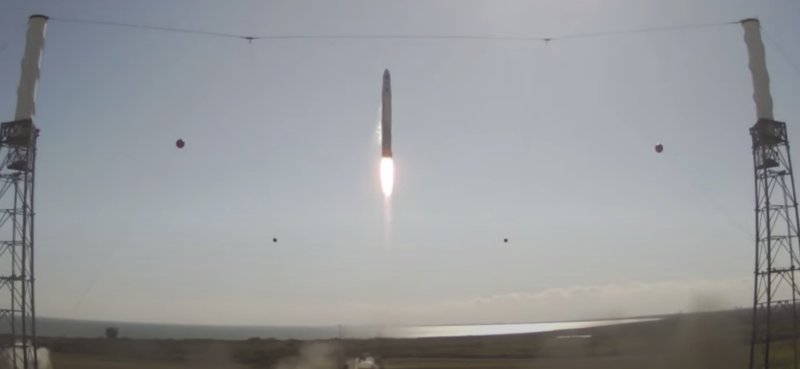Latest News

Astra’s launch on Feb. 10. The mission failed. Screenshot via Astra/NASA Spaceflight
Smallsat launcher company Astra released an update on its investigation into the Rocket 3.3. launch failure on Feb. 10.
Astra said in a Monday announcement that the payload fairing did not deploy before upper stage ignition because of an electrical issue caused when the separation mechanisms fired in an incorrect order. “Due to the disconnection, the last separation mechanism never received its command to open, which prevented the fairing from separating completely before upper stage ignition,” Astra said.
The fairing separation issue was caused by an error in an electrical harness engineering drawing.
In addition, the company also found a software issue that made the upper stage engine unable to use its thrust vector control system, which led to the tumbling seen on the launch broadcast.
Andrew Griggs, senior director of Mission Management & Assurance at Astra said it has fixed the drawing issue and incorporated the change on previously built harnesses, and implemented a new test to identify a potential similar issue in the future. The company also implemented software upgrades which it says makes the system more resilient to packet loss.
“Through constant iteration and extensive testing, we have been able to demonstrate that the changes eliminate the failure mode we saw on LV0008, while making the software suite much more robust,” Griggs said. “Here at Astra, iteration and learning are core parts of our culture. I’ve been continuously impressed with the speed, passion, and diligence that the team showed as they worked through these complex issues to identify exactly what occurred and determine the right path forward to resolve each problem.”
Astra’s investigation with the Federal Aviation Administration (FAA) is still open and information released Monday was preliminary. The company plans to return to the launch pad “soon.”
Get the latest Via Satellite news!
Subscribe Now